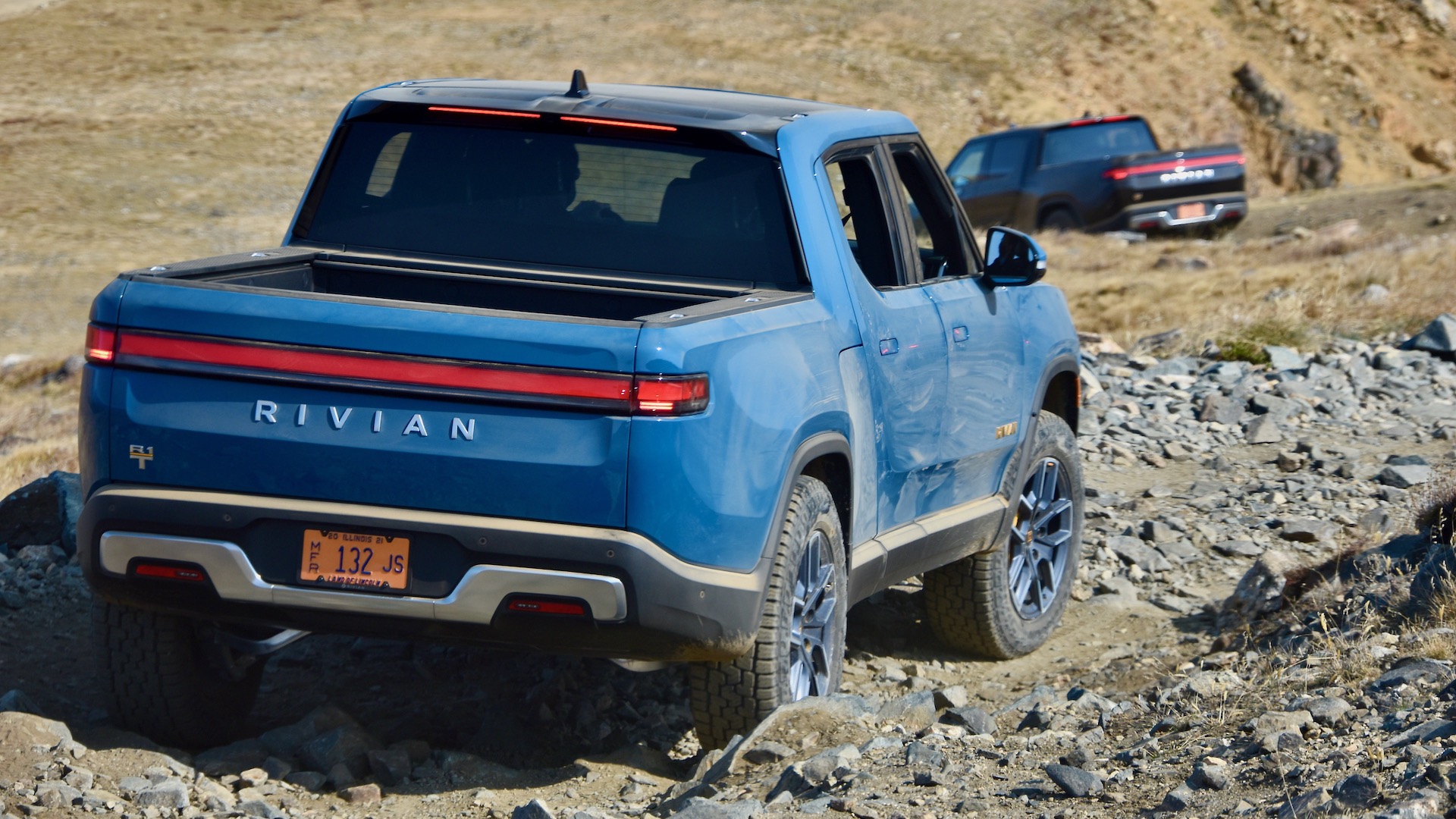

Electric vehicles’ battery temperatures must be carefully controlled, both to maximize range and performance, and to minimize degradation. Without adequate cooling, an EV could wind up like the first-gen Nissan Leaf and lose significant range over time. While not as consequential, the absence of a heat pump can still hurt an EV’s range in cold weather. Despite lacking a dedicated heat pump, though, the 2022 Rivian R1T should be no victim of such, as heating its battery is done using waste heat from the vehicle’s inverter.
Rivian disclosed the setup to The Drive when asked for an explanation of the heat pump’s absence in Rivian’s 2022 model certification application with the EPA, dug up by users of Rivian Owners Forum. The document notably features “N/A” under the subheading on heat pumps, which seemed to signify no heat pump was present. There is indeed no dedicated heat pump, a company spokesperson confirmed, though this doesn’t mean there is no ability to warm the batteries. Instead, heat from the drivetrain’s inverter is captured by the coolant, which then circulates through the battery. Functionally, it’s the same thing, and a clever way to repurpose waste heat from the drivetrain—Kia and Hyundai do similar in their current EVs.

“The R1 vehicles are designed with active battery heating achieved through power electronics in the system, essentially mimicking the behavior of a heat pump,” explained a Rivian spokesperson. “This allows for battery temperatures to be maintained to provide appropriate energy output from the battery pack for optimizing range and cabin conditioning. This system supports the R1 vehicles’ overall performance in cold weather.”
The R1s’ lack of a heat pump isn’t the only interesting detail revealed by the document above, either. When I drove a prototype R1T earlier this year, we didn’t get official word on how much it weighed or what its maximum DC fast-charge speed is. Both have been confirmed in the document, which states the R1T weighs 6,949 pounds. As a bonus, the document even shares the curb weight of the R1S—that’s 6,916 pounds.
As for charging, Rivian previously only stated the R1T could recover 140 miles of range in 20 minutes on 200 kW DC input. According to the document, maximum input isn’t far above that, at 210 kW; a fairly high rate of charge, though it falls short of that offered by the comparable (though costlier) 2022 GMC Hummer EV, which can accept 350-kW charging. For further reference, the 2022 Ford F-150 Lightning appears to charge more slowly at 150 kW, placing the Rivian in the middle on charging, as it is on price and power output.

This limitation could stem from the R1T’s drivetrain being a 400-volt system, as opposed to the 800 volts chosen by Porsche for the quicker-charging Taycan (at 270 kW). The Hummer, on the other hand, is 800 volt-compatible during charging, though it otherwise operates at 400 volts.
The R1s’ lack of a heat pump won’t do them any favors in on-paper comparisons against other EVs, though it’s not likely it’ll significantly impact daily usability. The R1T’s 135-kWh batteries provide it with 314 miles of range—which, even suffering from an up to 57-percent range penalty found by AAA at 20 degrees Fahrenheit, would still guarantee 135 miles’ range by my own math. And if you need to regularly drive a pickup that far no matter the weather, you probably aren’t shopping for a truck with rigid range and recharging requirements in the first place.
Update: Dec. 14, 5:44 p.m. ET: A Rivian spokesperson clarified the R1s’ lack of a heat pump, explaining other parts of the drivetrain perform its duty instead.
Got a tip or question for the author? You can reach them here: james@thedrive.com.